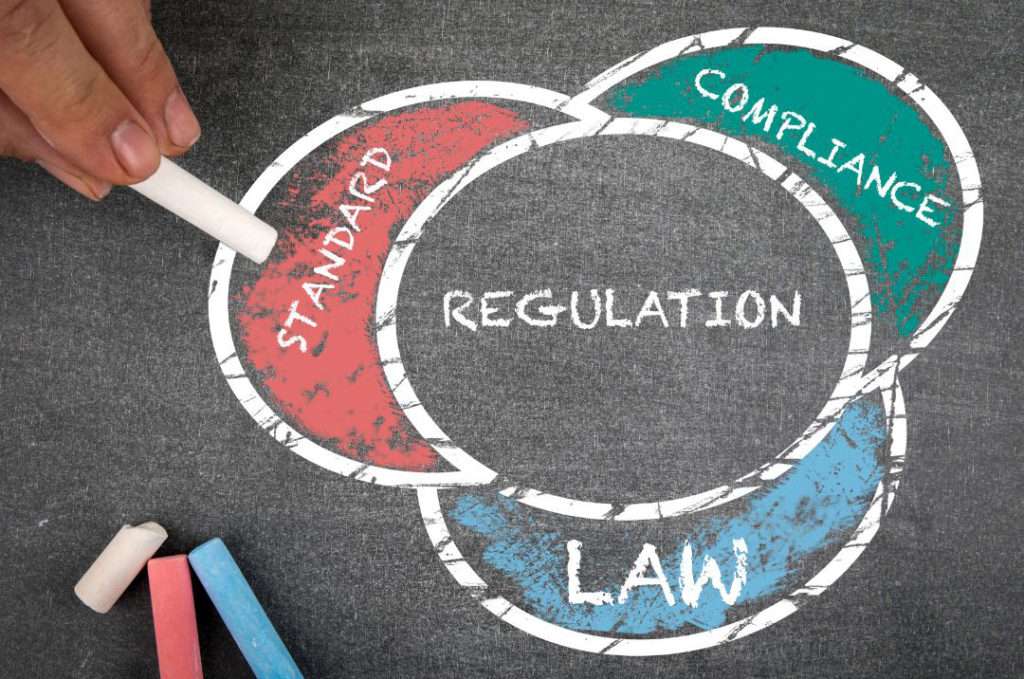Table of Contents
ToggleWhat is RegTech?
In the ever-evolving landscape of banking, compliance has become increasingly complex due to the rapid introduction of new regulations. This complexity, coupled with the need for financial institutions to maintain transparency and operational efficiency, has given rise to Regulatory Technology (RegTech). RegTech leverages advanced technologies such as artificial intelligence (AI), machine learning (ML), and natural language processing (NLP) to streamline compliance processes, enhance accuracy, and reduce operational costs. This article explores the transformative impact of RegTech on banking compliance, tracing its evolution, key technologies, and benefits, along with real-world examples and future trends.
The Evolution of Regulatory Technology
Historical Context
The concept of RegTech has deep roots in the financial industry, particularly in response to major regulatory reforms. The Dodd-Frank Wall Street Reform and Consumer Protection Act of 2010, enacted in response to the 2007-2008 financial crisis, significantly increased regulatory requirements for financial institutions. This surge in regulatory mandates created a pressing need for more efficient compliance solutions, paving the way for the development of RegTech.
Emergence of RegTech
RegTech, initially coined in the early 2010s, began as a subset of financial technology (FinTech) focused solely on helping financial institutions comply with regulations through technological solutions. Early RegTech solutions were rudimentary, primarily offering basic automation of compliance tasks. However, as technology advanced, so did the capabilities of RegTech solutions. By leveraging AI and ML, RegTech evolved to provide more sophisticated tools capable of real-time data analysis, predictive analytics, and comprehensive risk management.

Key Technologies in RegTech
Artificial Intelligence and Machine Learning
AI and ML are at the forefront of RegTech innovation. These technologies enable the automation of complex compliance tasks, such as monitoring transactions for suspicious activity, analyzing large volumes of regulatory texts, and predicting potential compliance risks. AI can process data at unprecedented speeds, allowing financial institutions to identify and address compliance issues more quickly and accurately than ever before. ML algorithms continuously learn from data, improving their accuracy and effectiveness over time.
Natural Language Processing (NLP)
NLP is another critical technology in RegTech, used to interpret and analyze regulatory documents. NLP systems can read and understand legal texts, extracting relevant information and translating it into actionable compliance requirements. This capability significantly reduces the time and effort required for human compliance officers to stay up-to-date with regulatory changes, ensuring that financial institutions can quickly adapt to new regulations.
Benefits of RegTech in Banking Compliance
Regulatory Technology (RegTech) offers numerous advantages for financial institutions by streamlining and enhancing compliance processes. Here are some key benefits:
Efficiency and Speed
RegTech solutions automate repetitive and time-consuming compliance tasks, significantly increasing operational efficiency. By leveraging advanced technologies like artificial intelligence (AI) and machine learning (ML), RegTech tools can quickly process large volumes of data, allowing financial institutions to stay on top of evolving regulatory requirements in real time. This automation not only speeds up compliance processes but also frees up valuable human resources to focus on higher-value activities.
Accuracy and Error Reduction
One of the primary benefits of RegTech is its ability to reduce human error in compliance activities. By using sophisticated algorithms, RegTech solutions ensure higher accuracy in regulatory reporting and risk assessments. Automated systems are less prone to mistakes, ensuring that compliance data is both reliable and precise, which helps financial institutions avoid costly fines and penalties associated with non-compliance.
Cost Reduction
Implementing RegTech solutions can lead to significant cost savings. Automating compliance processes reduces the need for large compliance teams, thereby lowering labor costs. Additionally, RegTech tools can streamline the collection and analysis of compliance data, making regulatory reporting more efficient and less resource-intensive. These cost savings can be substantial, especially for institutions that handle large volumes of transactions and regulatory requirements.
Scalability
RegTech solutions are designed to scale with the growth of financial institutions. As banks expand and regulatory demands increase, RegTech can easily adapt, providing continuous support without the need for significant additional investments. This scalability ensures that compliance systems remain effective and efficient as the organization grows and regulatory landscapes evolve.
Enhanced Customer Experience
RegTech can also improve the customer experience by providing faster, more accurate, and more personalized services. Advanced analytics and ML algorithms allow banks to better understand customer preferences and behaviors, enabling them to tailor their services accordingly. This personalization can lead to higher customer satisfaction and stronger customer relationships.
Improved Risk Management
RegTech solutions play a critical role in risk management by identifying and mitigating compliance risks more effectively. These tools can monitor transactions in real time, detect suspicious activities, and predict potential compliance issues before they escalate. By providing timely insights and alerts, RegTech helps financial institutions proactively manage risks and enhance their overall security posture.
Case Studies and Examples
Company Profiles
Leading RegTech companies such as Ascent RegTech, founded in 2015 in the United States, focus on providing automated compliance solutions for banks and financial institutions. Ascent’s platform uses AI to interpret regulatory texts and generate compliance requirements specific to each financial institution, thereby reducing manual workload and ensuring accuracy.
Finastra, another major player headquartered in London, offers a range of RegTech solutions that support over 200 trade and supply chain finance banks worldwide. Their FusionFabric.cloud marketplace platform integrates various services, including digital document management and AI-driven compliance monitoring, to enhance operational efficiency and regulatory adherence.
Success Stories
BNY Mellon, a global banking and financial services holding company based in New York, has successfully implemented RegTech solutions to manage their extensive compliance requirements. By leveraging AI and ML, BNY Mellon has been able to automate their regulatory reporting processes, significantly reducing the time and effort required for compliance tasks and improving the accuracy of their reports.
Standard Chartered, a British multinational banking and financial services company, has integrated RegTech tools to streamline their Know Your Customer (KYC) and Anti-Money Laundering (AML) processes partnering with Silent Eight, a Singapore-based RegTech firm that specializes in leveraging artificial intelligence (AI) to address financial crime challenges. This integration has enabled them to reduce onboarding times for new customers, improve compliance with international regulations, and enhance their risk management capabilities.
Challenges and Considerations
Implementation Challenges
While Regulatory Technology (RegTech) offers significant benefits, its implementation is not without challenges. One of the primary hurdles is integration with existing legacy systems. Many financial institutions operate on outdated infrastructure, making it difficult to incorporate modern RegTech solutions seamlessly. This integration complexity can lead to high implementation costs and longer deployment times.
Another challenge is the lack of standardization across jurisdictions. Financial institutions often operate in multiple countries, each with its own regulatory framework. This lack of harmonization means that RegTech solutions must be adaptable to different regulatory requirements, which can be resource-intensive and complex.
Data quality and security are also significant concerns. RegTech solutions handle vast amounts of sensitive data, requiring robust data management and cybersecurity measures to prevent breaches and ensure compliance with data protection regulations. The shortage of skilled professionals with expertise in both regulatory compliance and advanced technologies like AI and ML further exacerbates these challenges.
Technological and Financial Constraints
The rapid pace of technological change poses another challenge. RegTech solutions must continuously evolve to keep up with advancements in AI, ML, and blockchain technologies. However, this constant evolution requires substantial investment in research and development, which can strain the financial resources of both RegTech providers and financial institutions.
The cost of development and implementation is a dual-edged sword. On one hand, developing advanced RegTech solutions is expensive. On the other, financial institutions must carefully choose the right solutions and strategies for implementation, which can be problematic due to varying interpretations of regulations and differing business needs.
Future Trends in RegTech
Technological Advancements
The future of RegTech is poised to be shaped by continuous advancements in technology. Artificial intelligence (AI) and machine learning (ML) will become even more integral, offering enhanced capabilities for real-time data analysis, predictive analytics, and automated decision-making. These technologies will enable RegTech solutions to provide more accurate and timely compliance support, reducing the risk of human error and increasing operational efficiency.
Blockchain technology is another area of growth. Blockchain can provide secure, transparent, and tamper-proof records of transactions and compliance activities. This technology will likely play a crucial role in areas such as transaction monitoring, fraud detection, and identity verification, offering a robust solution for maintaining compliance in a decentralized digital world.
Global Adoption and Standardization
As the benefits of RegTech become more apparent, there will be a push towards global adoption and standardization. International regulatory bodies and financial institutions will work towards creating common regulatory standards to facilitate the widespread adoption of RegTech solutions. This harmonization will help reduce the complexity and cost of compliance for financial institutions operating across multiple jurisdictions.
Regulatory Evolution
Regulators themselves are expected to embrace RegTech, using supervisory technology (SupTech) to enhance their oversight capabilities. By leveraging the same advanced technologies used by financial institutions, regulators can improve their ability to monitor compliance, analyze risks, and enforce regulations more effectively. This alignment between regulators and financial institutions will promote a more cohesive and efficient regulatory environment.
Conclusion
RegTech is revolutionizing the way financial institutions handle compliance by integrating advanced technologies such as artificial intelligence, machine learning, and blockchain. These innovations offer significant benefits, including increased efficiency, accuracy, and scalability, which help financial institutions navigate the complex regulatory landscape more effectively. Despite these advantages, the implementation of RegTech is not without challenges. Integration with legacy systems, lack of standardization across jurisdictions, and concerns over data quality and security are significant hurdles that must be addressed.
Looking forward, the continuous advancement of AI and blockchain technology will further enhance the capabilities of RegTech solutions, making them even more effective in ensuring compliance. The push towards global adoption and standardization of regulatory frameworks will facilitate wider acceptance of RegTech across different jurisdictions, reducing complexity and cost for international financial institutions. Additionally, regulators themselves are likely to adopt supervisory technology (SupTech) to improve their oversight and enforcement capabilities, promoting a more cohesive regulatory environment.
In conclusion, while RegTech faces several challenges, the future holds promising advancements that will drive its evolution and global adoption. Continuous innovation and collaboration between regulators and financial institutions will ensure that RegTech remains a critical tool for maintaining compliance in the ever-changing financial industry landscape.












